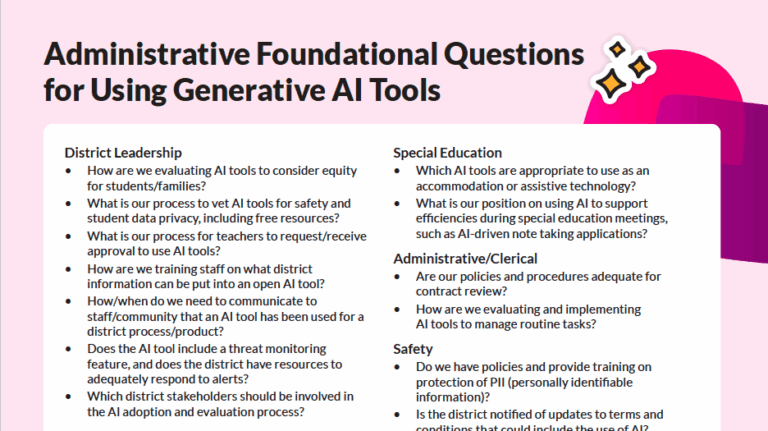The following article is written by Jim Capolupo, former superintendent and current president of Cambridge Solutions.
Does your board micromanage you?
If your answer to the question above is NO, you are fortunate. However, if your answer is a resounding YES, do not worry, you are not alone. Over the years as a superintendent, anecdotally, this was the number one complaint I heard from my colleagues. Let us look at the possible reasons for board to behave in this manner. I often felt there are only a few reasons why people want to be on a school board.
1. Some people may have a single agenda item they want to fix. Maybe it has to do with their own negative experience when they were in school. Maybe they are having a problem with their own children in school. They might have a relative that has a problem in school. In the end, they want to fix something. Maybe they have a personal agenda to change THEIR wrong into THEIR right. This has the possibility of becoming an ongoing problem to you and to the other members of the board.
2. Being on a school board can be the first step to launch a political career. It also can give some people a self-perceived sense of power. They may not have the power they may desire in their job or in their life.
3. Some people are at a place in life where they want to give back. They have free time on their hands and they are fine giving up some evenings for meetings.They have a positive opinion about public school. They may even have children in school and want them to have a positive educational experience.
4. They simply wish to serve to make the world a better place. They see this as an opportunity to do just that.
My belief is that board members fall into one or more of the above categories. You can witness this in their preparation, their discussion comments and how they cast their votes. Sometimes people micromanage because they feel the job is not getting done to their satisfaction. They want to take over without offer offering other options.
What can you do about this?
1. Figure out which one or more of the four above stated categories each of your board members are in.
2. Find out what each of your board members “really wants you to do.” These items may or may not be in your current goals.
3. If you determine the issues are of value AND the entire board agree that these items are essential, then you might have some new goals to complete or current goals may need to be reprioritized.
The conflict happens when a single board member wants the item to be done and the rest of the board does not agree. At this point, your working relationship with your board president or board chair is a potential solution to this single issue micromanagement topic. Navigating this journey is part of the CEO/Superintendent’s job. It is complex and you may have to consider the consequences if you let it be ignored. Your skillfulness in handling this type of challenge can lead a negative environment of a successful and productive point in time.
As easy is it may all sound, the truth of the matter is that it is much more difficult to solve this issue when you are in the middle of being micromanaged. You may want to consider having a board retreat to deal head on with the situation. Conducting role-playing scenarios to highlight individual situations you experience in being micromanaged can be helpful. This may sound a bit overwhelming, however, when utilizing an outside facilitator it can be a powerful and productive experience. Believe it or not, it also can be humorous. The live exchange can help point out the items even other board members see in their colleagues. If you don’t attempt to solve this it most likely will continue. In the end, it is really up to you if you want it to keep going or take a thoughtful approach/strategy to improve the situation.
Most important, keep your stress level down. You need to thrive not just survive! You are doing a GREAT JOB!
Jim Capolupo is a former Pennsylvania Superintendent of the Year and current president of Cambridge Solutions.

































